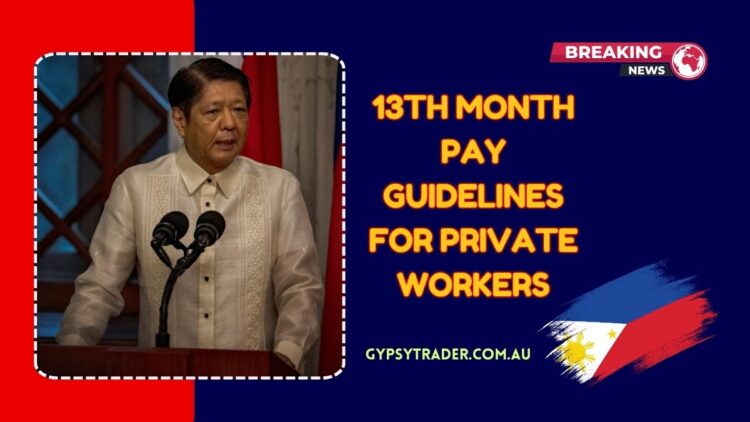The 13th month pay is a mandatory benefit for all rank-and-file employees in the private sector in the Philippines.
As per Presidential Decree No. 851, employers are required to provide this benefit to eligible employees who have rendered at least one month of service during the calendar year.
The Department of Labor and Employment (DOLE) oversees the implementation and compliance of this policy.
13th Month Pay Guidelines
| Aspect | Details |
|---|---|
| Eligibility | Rank-and-file employees in the private sector with at least one month of service |
| Computation | Total basic salary earned during the year divided by 12 |
| Inclusions | Basic salary; certain commissions and bonuses if stipulated in the contract |
| Exclusions | Overtime pay, night differential, holiday pay, and other allowances not part of basic salary |
| Payment Deadline | On or before December 24 each year |
| Tax Exemption Threshold | Up to ₱90,000 combined with other benefits; excess is taxable |
| Resigned/Terminated Employees | Entitled to prorated 13th month pay based on months worked |
How to Compute the 13th Month Pay
The computation of the 13th month pay is straightforward:
13th Month Pay = Total Basic Salary Earned During the Year ÷ 12
For example, if an employee has a monthly basic salary of ₱20,000 and has worked the full 12 months:
₱20,000 × 12 months = ₱240,000
₱240,000 ÷ 12 = ₱20,000
If the employee worked for only 6 months:
₱20,000 × 6 months = ₱120,000
₱120,000 ÷ 12 = ₱10,000
It’s important to note that only the basic salary is considered in this computation. Allowances and other monetary benefits not integrated into the basic salary are excluded.
Employer Responsibilities and Compliance
Employers are mandated to:
- Disburse the 13th month pay on or before December 24 each year.
- Provide prorated 13th month pay to employees who resign or are terminated before the end of the year.
- Submit a compliance report to DOLE not later than January 15 of the following year, detailing the disbursement of the 13th month pay to employees.
Non-compliance can lead to administrative sanctions and penalties.
Impact of the Labor Code Update 2025
The Labor Code Update 2025 has introduced clarifications to the 13th month pay policy:
- Inclusion of Certain Bonuses and Commissions: Performance-based bonuses and commissions may now be included in the computation if they are stipulated in the employee’s contract.
- Protection for Contractual Workers: Contractual and project-based employees are entitled to the 13th month pay, provided they meet the eligibility criteria.
- Documentation Requirements: Employers are required to provide a breakdown of the 13th month pay computation and obtain written acknowledgment from employees upon disbursement.
Provisions for OFWs and Mid-Year Hires
Overseas Filipino Workers (OFWs) returning to work in the Philippines and employees hired mid-year are entitled to a prorated 13th month pay based on the number of months they have worked during the calendar year. This ensures equitable treatment for all employees, regardless of their employment start date.
The updated 13th month pay guidelines for July 2025 provide clearer directives for both employers and employees in the private sector.
Understanding these guidelines ensures that employees receive their rightful benefits and that employers remain compliant with labor laws. Staying informed and adhering to these regulations promotes a fair and equitable workplace for all.
FAQs
Are sales commissions and bonuses included in the 13th month pay computation?
Only performance-based bonuses and commissions specified in the employee’s contract may be partially included based on company policy.
Can I still receive my 13th month pay if I resign before December 2025
Yes. If you worked for at least one month in 2025, you are entitled to a prorated 13th month pay.
What happens if my employer doesn’t give me my 13th month pay on time?
Failure to comply by December 24 may lead to DOLE investigations, penalties, and legal consequences for the employer.

